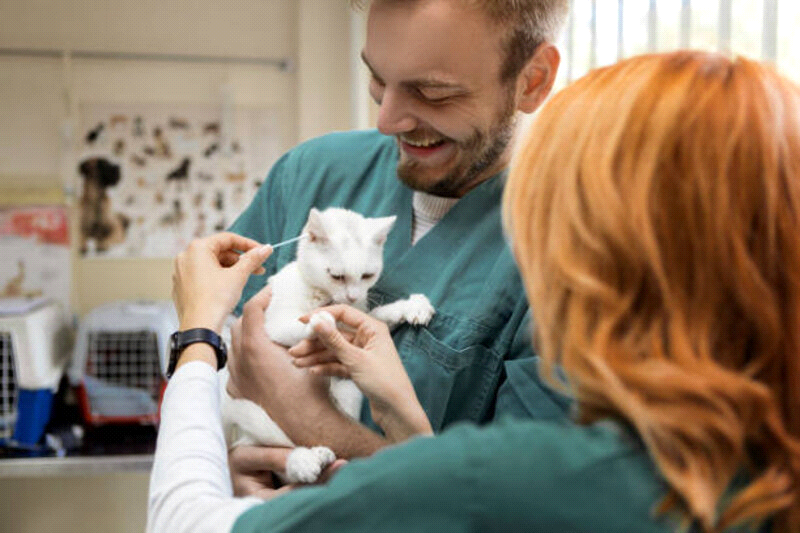Pet Insurance: A Prudent Investment or an Unnecessary Expense?
Triston Martin
Dec 22, 2023
Whether you're a long-time pet owner or just welcomed the newest addition to your family, making sure that your cherished companion receives necessary healthcare costs can be difficult. From regular check-ups to costly emergency treatments, an illness or injury for your furry friend could mean taking a hefty hit to your wallet – but is buying pet insurance the answer? Join us on this journey exploring all sides of the matter and discover whether investing in this form of protection is truly prudent or just another unnecessary expense.
Overview of Pet Insurance:

Pet insurance exists as a way to help offset the cost of medical treatment for your pet in the event of an accident or illness. Depending on the plan you choose, it can cover everything from regular check-ups to more expensive treatments (like cancer care). An important component of pet insurance is that it may also provide coverage for preventive health services like vaccinations and heartworm medication.
While it may not be the most exciting purchase, pet insurance is a way to protect your family from potential major expenses related to caring for a pet. Furthermore, in some cases pet insurance can actually end up saving you money in the long run if your pet requires costly medical treatments. Plus, since most plans have set coverage limits and sometimes offer discounts for multiple pets, pet insurance may be an economical way to care for your furry family members.
The negatives of pet insurance:
Despite the advantages of taking out a pet insurance policy, there are some drawbacks you should consider before making a purchase. For instance, depending on the plan you select, you may have to pay high premiums or deductibles that could be difficult to cover. In addition, not all medical treatments are covered under pet insurance policies – some may exclude things like pre-existing conditions or alternative therapies (like acupuncture).
It’s also important to note that the coverage limits and reimbursement percentages of the plan you choose can vary significantly. This means that you may end up not being able to use your policy due to not being able to cover the full cost of a medical treatment or it may not offer reimbursement at the level you were expecting.
Benefits of pet insurance, such as coverage for medical expenses, preventative care, and emergency services:
Pet insurance offers a great way to protect yourself from the potentially large medical bills that can come with owning a pet. Many plans cover things like regular check-ups, vaccinations, and emergency services such as surgery or X-rays. Prevention is also key when it comes to healthcare for pets – some plans may even include coverage for preventative treatments such as dental cleanings, flea and tick medication, or heartworm preventatives.
By investing in pet insurance, you are helping to ensure that your pet will receive the medical care they need should anything go wrong – without costly surprises for you. Plus, many policies have flexible payment plans which makes them a less expensive option than paying for treatments out-of-pocket or through credit.
Common myths about pet insurance and how to dispel them:

Despite the potential benefits of pet insurance, there are various myths that can give people a false impression about what it covers and how much protection it truly provides. To ensure you make an informed decision when considering pet insurance for your furry family member, here are some common misconceptions and explanations on why they’re not true:
Myth #1: “Pet insurance is too expensive.”
Fact: The cost of pet insurance can vary widely depending on the plan you choose and the type of animal you have. Plus, many policies offer flexible payment plans so you don’t have to pay large premiums all at once.
Myth #2: “My pet won’t need any medical care, so I don’t need pet insurance.”
Fact: Many people think that because their pet is healthy they won’t need any medical care – but accidents and illnesses can still happen. In fact, according to the Humane Society of the United States, nearly 1 in 3 pets will require emergency veterinary care each year. Pet insurance can help cover the cost of treatment in case of an accident or illness.
Myth #3: “My pet’s pre-existing condition won’t be covered by pet insurance.”
Fact: Some pet insurance plans will offer coverage for pre-existing conditions, provided they are diagnosed within a certain period from the time you purchase the policy. Be sure to read your policy carefully to understand what is and isn’t covered.
Conclusion:
Before deciding whether or not to purchase pet insurance, be sure to thoroughly research your options and understand the coverage limits and restrictions of each plan. Pet insurance can be a great way to protect yourself from costly medical bills for your furry companion – while it may cost money up front in the form of premiums or deductibles, it could save you thousands in the long run if your pet requires a costly treatment or surgery.
FAQs:
Q: How much will pet insurance cost?
A: The cost of pet insurance can vary depending on the plan you select – so be sure to research a variety of policies before deciding on one.
Q: What types of treatments are covered by pet insurance?
A: This depends on the plan you purchase, but many policies will cover things like regular check-ups, vaccinations, emergency services, and preventive treatments. Be sure to read your policy carefully to understand what is covered.
Q: Can I get coverage for my pet’s pre-existing condition?
A: Some policies may offer coverage for pre-existing conditions depending on when the diagnosis was made. Again, it’s important to read the policy carefully to understand what is and isn’t covered.
Q: Is pet insurance worth the cost?
A: That depends on your individual situation – but if your pet requires expensive medical treatments, having pet insurance can save you money in the long run. It may also give you peace of mind knowing you are financially prepared for any unexpected medical costs.







